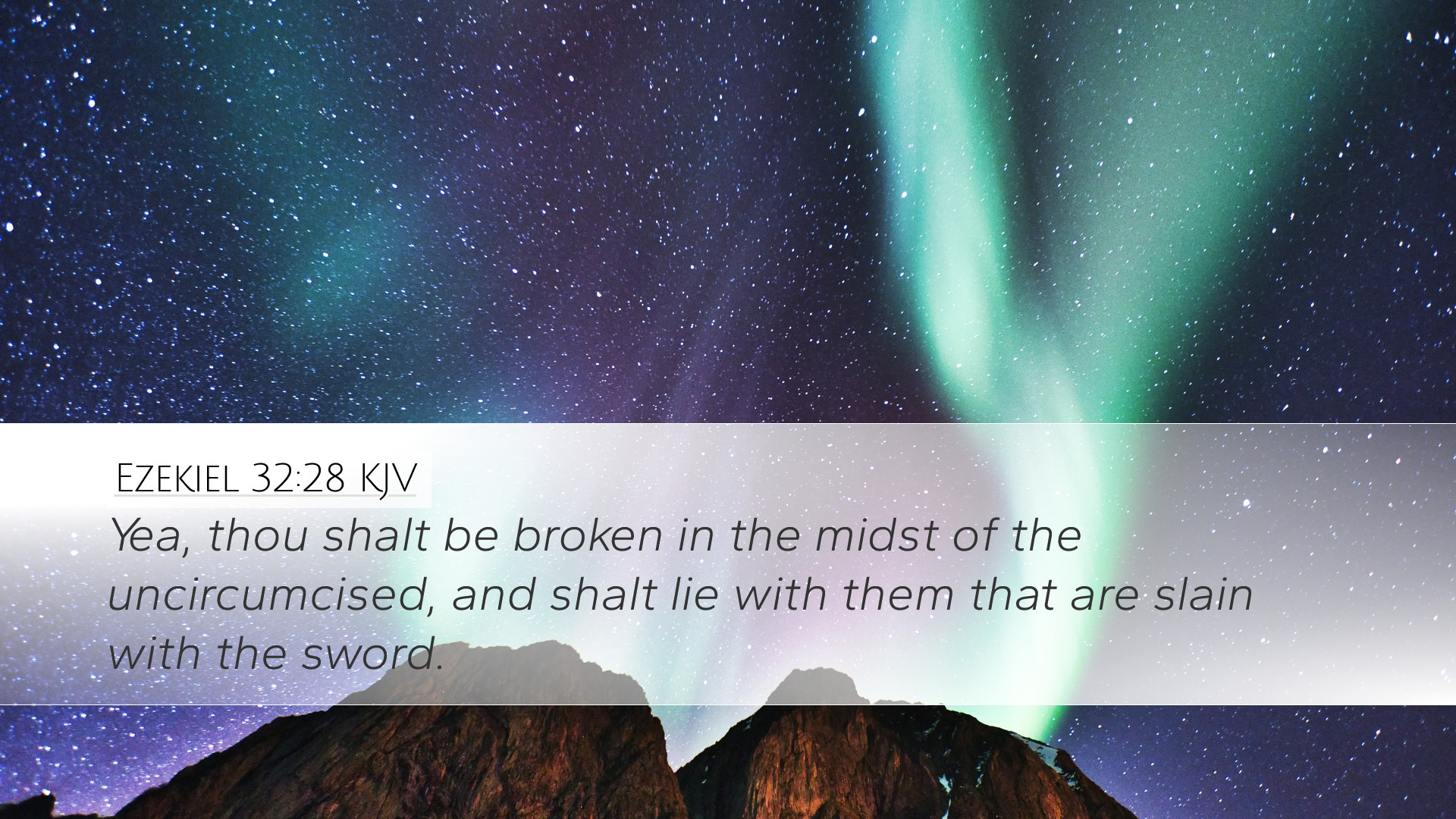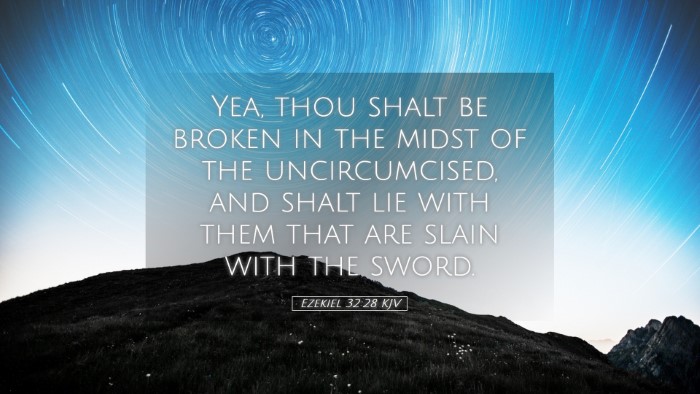Ezekiel 32:28 - Commentary Summary
Ezekiel 32:28 serves as a significant verse within the broader context of divine judgment and the prophetic messages employed by the prophet Ezekiel regarding the fate of nations. In this passage, we find insights that highlight the depth of God’s justice and the themes of desolation and the consequences of leading a life opposed to God's will.
Contextual Background
The Book of Ezekiel, a prophetic work, is set against the backdrop of Israel's exile, where the prophet delivers messages from God concerning judgment and restoration. Ezekiel’s role is to communicate God’s purposes for Israel and the nations surrounding them. Chapter 32 specifically addresses Pharaoh and Egypt, employing vivid imagery to describe their impending destruction.
Verse Analysis
Ezekiel 32:28 states:
"Yet thou shalt be brought down to the pit, and thou shalt die the deaths of the uncircumcised, by the hand of strangers."
This verse illustrates the ultimate fate of Pharaoh, symbolizing the wider calamities set upon Egypt for its pride and opposition to God’s sovereignty.
Judgment and Desolation
The phrase "brought down to the pit" indicates a profound humiliation, denoting both physical and spiritual ruin. Matthew Henry emphasizes that the “pit” refers to Sheol, the place of the dead, underscoring the finality of divine judgment. In contrast, Adam Clarke elaborates on the notion that being “uncircumcised” denotes not just a physical state but a spiritual one, indicating separation from God’s covenant and His people.
Human Agency and Divine Sovereignty
The term "by the hand of strangers" reflects God's use of foreign nations as instruments of His judgment. Albert Barnes notes the irony of Egypt, a nation that once took pride in their strength and independence, now facing defeat by outsiders. This serves as a stark reminder of how quickly fortunes can shift and how little control humanity has over divine providence.
Theological Implications
This passage has profound implications for understanding God's character and His dealings with nations. It reveals God’s absolute authority over all peoples, as well as the inevitability of judgment upon those who reject His ways.
- The Inescapability of Judgment: The imagery of being cast into the pit is an unambiguous expression of the reality that God’s justice cannot be avoided.
- God's Sovereignty: The verse emphasizes that while it may appear that nations stand independent, they are actually under God's dominion, wielded through His divine will and purpose.
- Consequences of Rebellion: The rejection of God's covenant leads to dire consequences, reminding leaders and individuals alike of the importance of remaining aligned with God’s laws.
Pastoral Applications
For pastors and ministry leaders, Ezekiel 32:28 presents an opportunity for teaching about the seriousness of sin and the reality of divine judgment. It encourages the faithful to maintain humility and reliance on God rather than on their might or abilities.
- Preaching Repentance: This passage serves as a powerful reminder to call congregations to repentance, warning against the pride that can lead to spiritual desolation.
- Assurance of God's Justice: In uncertain times, the assurance that God holds nations accountable for their actions brings comfort to believers, reinforcing trust in God’s perfect justice.
Conclusion
Ezekiel 32:28 encapsulates critical themes regarding judgment, humility, and the sovereignty of God. By reflecting on this verse, believers are invited to consider their own standing before God, to heed the warnings provided through the prophetic Scriptures, and to remain faithful to the covenant relationship offered by God through Christ.


